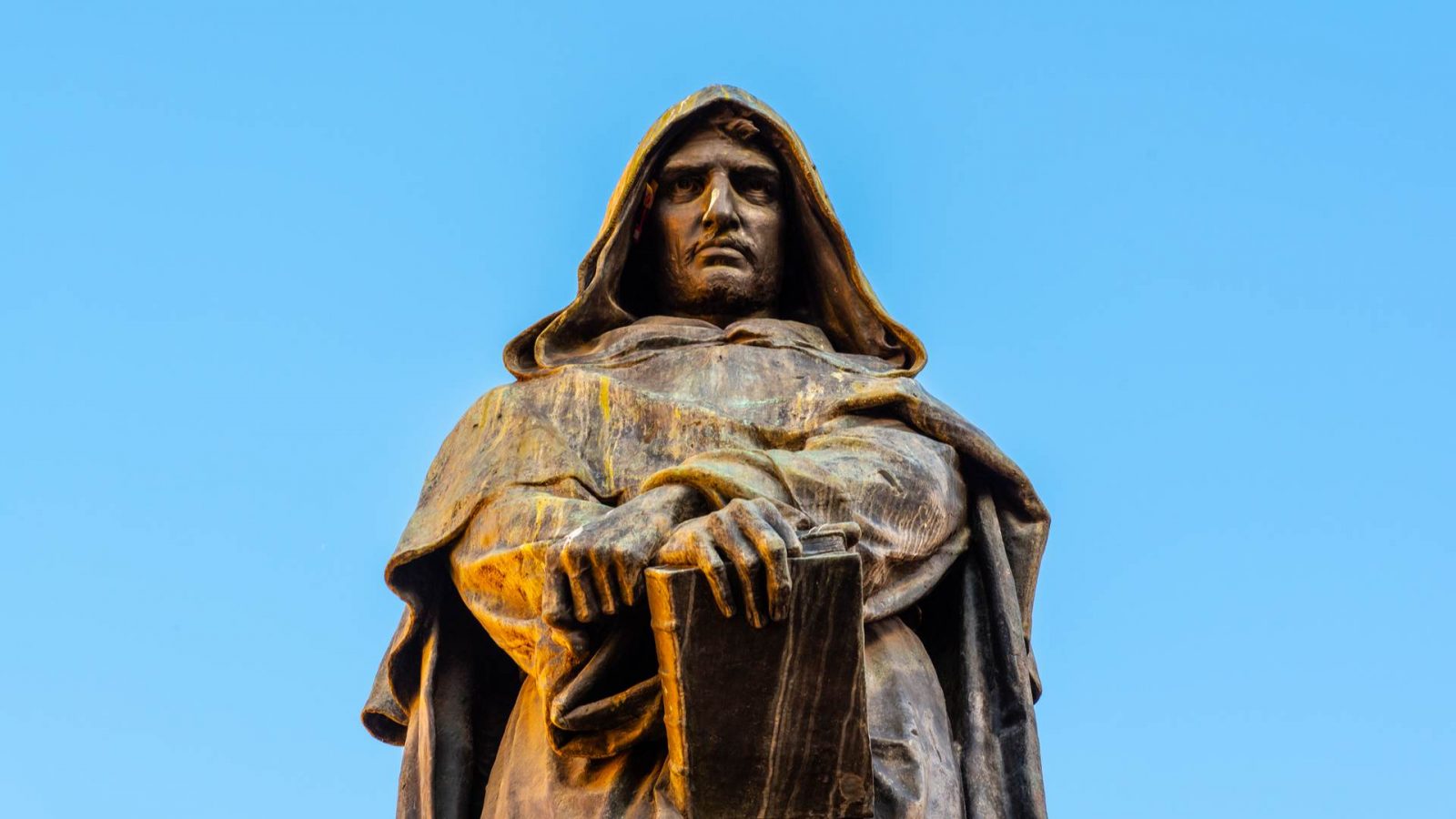Executed by burning alive: Who is Giordano Bruno?
Giordano Bruno was accused of irreligion and heresy. On February 17, 1600, after eight years of torture and prison life, he was burned at the stake by the executioners of the Catholic Church, in a public "show" where his statue stands today in Rome.

(1548-1600) Italian philosopher and naturalist. Inspired by Neo-Platonism and Epicureanism, he brought a new interpretation to the problems of existence and defended the idea of the identity of God with the universe. Born in Nola, Campagna, he was burned to death in Rome. He was from an old noble family. Under the influence of his family, he entered the Dominican order at a young age, and after a short time left this community, where he could not get used to his education and lifestyle, and devoted himself to natural sciences and philosophy.
He read the ancient Anatolian-Greek sages, and the writings of Plotinus, the founder of Neo-Platonism, and especially studied the works of Copernicus, thinkers like Nikolaus Cusanus, Raymundus Lullus, and Tclsius Bernardius, who tried to reconcile their philosophy with natural sciences. He made astronomical studies and observations.
He opposed many of the views held by the church, arguing the inconsistency of monastic life, that facts can only be considered in the light of science and philosophy. He was prosecuted for these views; first to Geneva, then to Paris, London, then to Wittenberg, Prague, and Frankfurt.
Everywhere he went, he was followed because of his thoughts, and he could not hold on for a long time in the educational institutions where he was assigned. After a life full of pain, troubles, and adventures, he was caught by this person in Rome, where he went with him, deceived by the words of a noble who was educated by him and took his protection and was tried after years of detention.
He did not listen to the suggestions of the Inquisitor who tried to change his mind, he defended the correctness of his views, that the church had misunderstood Christianity, that the truth was different from what the church understood, fearlessly and effectively. In the meantime, when the judgment that led him to death by burning was announced, he could not help himself from saying to the decision board sarcastically, "You are very afraid of me when you send me to death".
In terms of his way of thinking, Bruno is an example of a thinker who focuses on very different subjects, broadens his field of interest from the sciences of experiment and observation to theology, approaches problems seeks for solutions with an enthusiastic artist attitude rather than a wise scholar. The problems he deals with include the subjects that Renaissance sought solutions based on the principles of reason, experiment, and observation data.
According to him, "the universe consists of the development of an eternal principle that connects all the objects in it in a certain harmony with each other", this principle is divine. “Principles (principio) are dominant in all objects and causes (causae) in all events” in the universe.
God is the only sovereign power of the universe; No entity in the universe can make any "spontaneous" motion, except for divine power. God is the only source of the moving, regenerating power called the "universal spirit." Despite being identical to the universe, it is a "transcendent" being. Therefore, God is “a universal substance in which all things exist, the substance of all substances, the basis of all singular beings.”
However, God is not a "soul" or a "body", he is the creator of all souls and bodies. God is “unity”, “being”, “place”, an intellect (mens) that is the source of all reason. Since God is a "universal spirit", it is necessary to look for him within man, not outside.
Bruno was considered one of the most interesting scholars and sages of the Renaissance, and his influence on those who followed him throughout the ages. His introduction to philosophy with a method derived from empirical sciences, especially astronomical observations, shed light on subsequent rationalist philosophers. All of the philosophers who benefited from his light adopted the rationalist view and sought solutions to all issues from the problem of God to the existence of the universe, the soul, and human problems, with an understanding fed by experimental sciences.
In particular, philosophers such as Descartes, Leibniz, and Spinoza, who dealt with God-Universe-Human problems in a triple unity, followed Bruno's footsteps and were inspired by his thoughts on these problems. The source that feeds Descartes's soul, Leibniz's monad, and Spinoza's concepts of substance are the views of Bruno in his works Della Causa Principio, De Imraenso et Innumerahilis vc De Monade Numero et Figura.
The main source that Diderot was influenced by is Bruno's theory of matter. His explanations of the formation of the universe and the "universal spirit" shed light on Hegel as well as inspired 19th-century idealists.
On February 18, 2000, Vatican Under-Secretary of State Cardinal Angelo Sodano expressed the "deep regret" of the Catholic Church in a letter. 400 years later, the Cardinal described Bruno's burning as "a dreadful death", "a sad chapter in Christian history".
